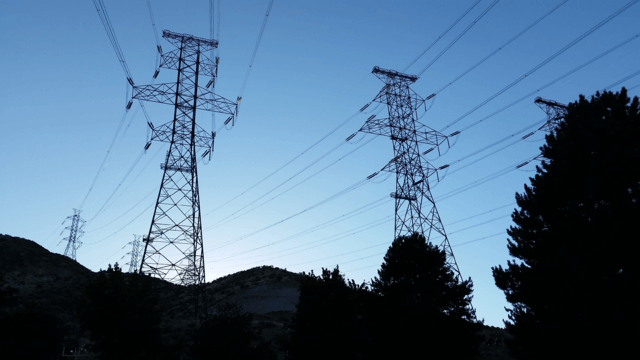There is a gathering storm over the nation’s electric supply.
What has been described as the world’s biggest machine, the U.S. electricity system, is stressed — and that stress will increasingly affect reliability. That means sporadic blackouts, some extensive. While the nation won’t be plunged into total darkness, regional difficulties will occur, according to the industry’s own watchdog group, the North American Electric Reliability Corp.
There are nearly 3,000 electric utilities in the United States, and what is known as the grid is, in fact, three grids: the Eastern, the Western and Texas. The first two interconnect and flow power back and forth where possible, but Texas is separate — and not subject to the regulation by the Federal Energy Regulatory Commission.
There are three classifications of electric utilities: the big investor-owned companies like Pacific Gas & Electric, ConEd and the operating units of the giant Southern Co.; the 2,000 public power companies, usually municipally owned, and a few, like TVA, federal government-owned; and the rural electric cooperatives, which can be quite large or very small. Together, they operate the grids in surprising harmony and collegial cooperation.
The price of electricity is rising faster than inflation, according to the Energy Information Administration — a sure sign of building pressure on the companies. The causes of this stress are many. First, there is more demand for electricity across the board. That demand is rising about 2 percent a year, and the increase may accelerate after 2026.
Contributing to the demand is the proliferation of data centers and their huge appetite for electricity — an appetite now fed by artificial intelligence and its increasing use everywhere.
Then there is the effect of environmentally driven demand: switching heavy industry from using fossil fuels to using electricity for high-energy uses like steel-making. This is set to grow.
In the same way, the use of electrified transportation is upping its share of electricity demand: It isn’t just Priuses and similar personal vehicles but big fleets, particularly for in-city deliveries. The Postal Service, Amazon and other fleet users are converting to electricity. Burns & McDonnell, the Kansas City-based engineering, architecture, construction, environmental and consulting solutions firm, estimates half of intracity deliveries will be with electric vehicles by the decade’s end.
Increasingly, new homes will be all-electric as the future of natural gas supplies is compromised by public policy.
Exacerbating instability in the electric sector has been the swing from fossil-fuel generation — primarily coal and natural gas — to renewables. Those simply aren’t always available. The race is on for better batteries and storage to smooth the variability of wind and solar, especially wind.
Nonetheless, the pressure is constant to close coal and gas plants, which have always available generation, known in utility parlance as “dispatchable,” and account for 19 percent and 38 percent of generation, respectively. It adds to the difficulties of keeping the lights on.
The dilemma was set out for me by Duane Highley, CEO of Tri-State Generation & Transmission, in Westminster, Colorado. It provides power to 42 rural co-ops in four states.
Highley explained the new instability in the industry this way: “The rapid rate of retirement of dispatchable generators has raised concerns among our membership about the reliability of the greater grid.”
He said the industry can and is achieving rapid rates of emissions reduction but will still need “an appropriate amount of cost-effective dispatchable generation.” Today, Highley noted, this is provided by coal and natural gas. This power will be needed to ensure a reliable and resilient grid as the demand for electricity increases.
“The traditional metrics utilities have used to model reliability can no longer demonstrate grid resilience as we rely more on intermittent weather-dependent resources.”
Tri-State, Highley said, is “working with its members on new reliability methodology to assure we have sufficient capacity, even with high levels of renewable generation.”
Electricity loss is a lethal matter.
In Texas, 254 people, by official count, died when some of the grid went down during the blackout caused by Ice Storm Uri in 2021. And in last year’s heat dome over Arizona, the state estimates 654 people died of heat-related causes in Maricopa County.
Clearly, job one is to keep the lights on before we retire the tried-and-true generating plant of yesterday. Life depends on it.

